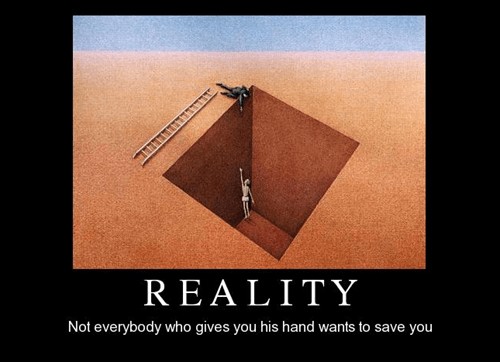A common question within Salesforce (and other ecosystems) is the value of being a certified professional.
To get certified, you need to spend a substantial amount of time to prepare in some cases (I’m looking at you, the Certified Technical Architects 😁.) And it isn’t exactly free. Each attempt will set you back a few hundred dollars. In some cases, even a few thousand. I’m looking at you again, the CTA’s.
So it is understandable that new people to the ecosystem want to understand why they should make the investment (or the employer).
Is it worth it?
Let’s get this question out of the way as soon as possible. Yes, it is. But why is it worth your effort and time? Let’s look at a few benefits!
You can verify your expertise
Certifications (and Accreditations) can verify that your knowledge is on par with the “standards.” Even though you might have already done a project or two, there might be a few areas you have not touched yet.
Each certification has a preparation guide to show you the content you should master. It should be easy to pinpoint the areas you must work on to pass the exam.
And filling those gaps in your knowledge will help you on your next project!
Get to know the platform
Let’s turn that previous topic upside down. Maybe you still need project experience, but you have one in a few weeks/months.
You want to be prepared! But where to start? A certification could be a good guideline for getting to know the platform, features, and capabilities.
And it is always nice that you can take the exam at the end of the road, which will verify if you understand the concepts you have been learning about in the past weeks and months.
Does it benefit someone else?

Of course, getting certified does not only benefit you! Many benefit from you being a Certified Professional!
Partners
If you work for an ISV (Independent Software Vendor) or SI (System Integrator), they benefit from getting you certified.
Salesforce uses information such as Trailhead Badges, Partner Learning Camp Accreditations, and Certifications to weigh a partner’s capabilities. The more Certified Professionals a partner has, the more Salesforce will pitch the company to potential clients (co-selling).
A second benefit is a part of the “Consulting Partner Program.” You may know that there is a rewards/tiers program (Base, Ridge, Crest, and Summit), and you need to collect points to rise to the top of that mountain.
One of the ways to earn points is the “Innovation” section, where you get points for, you guessed it, credentials (certifications). So for a partner to grow in tiers, a certain amount of certificates will help them get there!
Some certifications will give more points than others: A good example is that Architect certificates give ten points, while an Administrator certificate only awards one.
Salesforce
It shouldn’t surprise you that Salesforce themselves benefit from providing certifications! They benefit most from this system, but let me tell you why.
- It is an excellent way to see and grow partner expertise: The eco-system becomes more prominent every year, and more and more companies join the fray. Salesforce needs measurement tools to pick the best partner for each client to pitch. Certifications are an excellent way to be pointed in the right direction (but it is only some of it)!
- It benefits Salesforce customers: Having Certified Professionals ensures they have the knowledge to help customers with their challenges and needs. You can’t just let anyone do an implementation, which might end in disaster if they do not have the required knowledge in-house!
- It is a steady income: Salesforce invests in creating these certifications, but there is an ROI because so many people take them (and the trainings to prepare).
Salesforce Customers
Companies put their trust in you to do an exemplary implementation of Salesforce. One way for them to see that you have the required knowledge (and the easiest) is to look at your credentials. It is always nicer to know that your project is being implemented by a team of Certified Developers and Administrators than a team with no prior experience or certifications.
But does that mean that they know what they are doing? Certifications will never match experience, but that is a topic I will touch upon later!
You want to land your first job
This one is a bit controversial since you have to spend money to get a job to earn money. And this is not possible for everyone!
So do you need a certification to land a job in Salesforce? Absolutely not!

Unfortunately, not everyone hires with the mindset of this quote by Simon Sinek. I hire for my team at Forward and have hired many people with no certifications or experience in the Salesforce ecosystem.
If you are willing to invest, the certifications on your resume will put you higher up in the resume pile – above the people without them (on the same experience level).
The harsh reality
You just hired your first Certified Professional, with five certifications in all the areas you need expertise in! You feel great and have confidence that this person will resolve all your challenges in the coming months.
Three months pass, and your challenges are looking more like forest fires. How is this happening? You hired a pro, right?
Certifications ≠ experience
No matter how well you understand the theory and exercises on Trailhead, they will never match the complexity of a real-life project. Doing projects in a team and learning from your more experienced peers will give you more knowledge than preparing for a certification ever will.
You will hit “walls” in projects that need inventive ways around (or demolish) that you will not experience in Trailhead modules or superbadges.
On the latest episode of the Salesforce Developer Podcast, I heard a few sentences that resonated:
An MQC is what’s called a minimally-qualified candidate. This is an individual who with at least some preparation, some experience, can they take this exam and pass it. The reason behind that minimally-qualified candidate, once again, it’s the words, “Minimally-qualified.” Do they have just enough to make it real?
Shoby Abdi
With just the certificate pass, you will have just enough (minimally qualified) knowledge to get projects up and running. Still, there is a lot of room to grow in experience – and this experience will consist of challenges you might run into and how to resolve them in the best possible way!
If you are put on a complex project without prior experience, ensure you have someone who has your back when **** hits the fan! You might worsen things and wall yourself in if you are alone without expert help.
Cheating

Unfortunately, we live in a world where not everyone makes an effort to get certified correctly. There are many ways to cheat on certifications:
- Exam Dumps: People buy actual exams with questions and answers and study that instead. You are not learning anything by doing this.
- Have someone else take the exam: This is something relatively new I saw pop up on Twitter. People are getting messages from companies who offer to take the exam for you with a 100% promise of passing. You won’t learn anything at all by going this route. Plus, you will be paying for the exam and the service.
Some certifications are just too easy
I have accumulated five certifications and ten accreditations in the past five years. Some of these are relatively easy to pass. One (I won’t say which) took me about 4 hours of preparation to part with a score of 100%. But I was in a summer competition hosted by Salesforce, and whoever got the most certifications would win a prize. This caused me to look for easy wins (I never cheated!) to get up in the rankings.
Does that mean I am a subject matter expert in that area? Most definitely not!
What does this prove? That I can study well.
But I did learn a lot from this competition. I learned about specific features in more detail and about platforms I had never touched before within the Salesforce ecosystem (Yup, I’m talking about you, Net Zero Cloud).
Conclusion
I mentioned this initially, but getting certified is worth it if you use it as intended. As long as you don’t think being certified puts you on an equal plane (or above) to those with project experience (but no certifications), you should be fine!



